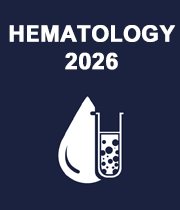Hematology
Blood transports nutrients and oxygen to the various human tissues while also transporting carbon dioxide away from the tissues. Blood is incredibly valuable, but it is also extremely susceptible, as it is prone to certain types of illnesses. The study of blood and blood problems is known as haematology. Hematologists and hematopathologists are medical professionals who specialize in problems of the blood and its components. Blood and bone marrow cells are examples of this. anemia, infection, hemophilia, blood-clotting problems, and leukemia can all be diagnosed with haematological tests. Hematology is a branch of medicine that deals with the diagnosis, treatment, and overall management of persons who have blood problems ranging from anaemia to cancer. A blood test can often provide an accurate assessment of body conditions and how internal or external influences may affect a patient's health. Millions of People suffer from hematologic diseases, which are abnormalities of the blood and blood-forming organs.



Title : Acute intermittent porphyria: A neurological dilemma obscured by ubiquitous fgastrointestinal presentation
Mayank Anand Singh, Mimer Medical College, India
Title : Comprehensive symptom management and supportive nursing care in a preterm toddler undergoing HSCT for pyruvate kinase deficiency
Tran Thi Dung, Vinmec International Hospital, Vietnam